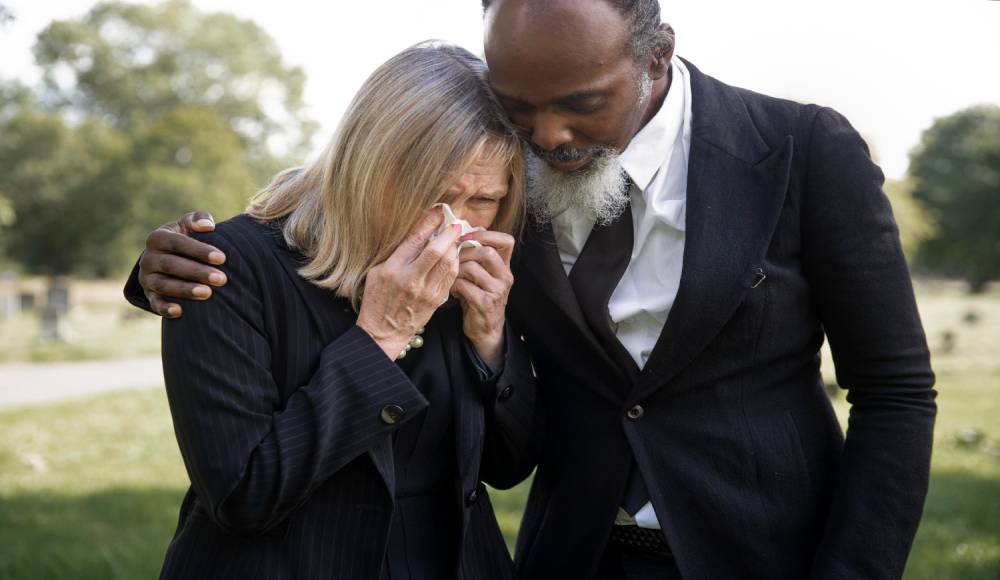Grief involves coping with loss. Grieving is the emotional process of responding to a loss, particularly the death of a loved one, but it can also apply to other significant losses, such as the end of the relationship, loss of health, or loss of a job.
It’s a common understanding that grief is a painful period following only the death of a loved one. But grief can accompany any event that disrupts or challenges our sense of normalcy or self. It is a natural reaction to loss and it is universal and a personal experience. Individual experiences of grief vary and are influenced by the nature of the loss. Each person has a different way to cope with the grief they are facing. It depends on the situation as well as the person facing the situation.
Also Read: Grief in the Pandemic Era
People often go through several stages of grief when experiencing a significant loss. But before we discuss further about the stages, it is important to understand that the grieving process can be complex and it isn’t the same for everyone. These steps may not be followed exactly by all individuals but their understanding makes it easier to know – what the individual is going through themselves as well what the other person is going through.
The Five Stages of Grief
The five stages of grief is a theory developed by psychiatrist Elisabeth Kubler-Ross (Kubler-Ross & Kessler, 2014). She makes it clear though, that the stages of grief are nonlinear – they do not happen in one particular order.
- Denial
The first stage of grieving is Denial. It means that people in this stage feel numb and refuse to accept the situation. They may carry on as if nothing has happened. Individuals in this stage may have faced the situation quite recently and thus find it tough to believe that they have lost an important person in their life, especially when they have spoken to them the previous week or day.
- Anger
The second stage in grieving is Anger. As the individual is trying to adjust to the new environment without the presence of the loved one, they are likely to face extreme emotional distress. This can translate into them feeling angry about the situation,other people or even towards the person they lost. Anger acts as a defense mechanism in this case where the unwanted sympathy, or the need to be vulnerable is avoided, thus allowing the person to maintain a sense of control over their emotions.
- Bargaining
In this third stage, individuals may try to regain control or are willing to do anything to alleviate or minimize the pain they feel. They start to believe that if they behave in a particular way, they will feel better. In this stage, they try to make “deals” with themselves or God if they are religious hoping to go back and change things. Bargaining comes from a feeling of helplessness and may give us a sense of control for the time being.
- Depression
After all these stages the individual finally starts to see the reality of the situation. They start to feel the loss of their loved one more abundantly. They may feel like they cannot cope with the situation anymore. This is one of the most difficult phases of the five stages. The depression can be extremely isolating since the individual may find themselves retreating, being less sociable and reaching out for help, less.
- Acceptance
The last stage is Acceptance. Reaching this stage does not mean that the person no longer feels the pain or they stop grieving altogether. Instead they see the reality of the situation and instead of denying or manipulating themselves or the situation they accept it as it is.

Strategies To Cope With Grief
1. Acknowledge your feelings
In the grief period it is important to accept that whatever emotions one is feeling – whether it is being angry, sad or lost. All of this is a part of the process. Suppressing the grief is not the right way to go through the process. Letting oneself cry, talk and express the frustration is crucial too.
2. Seeking Support
Expressing oneself to others and sharing the feelings with trusted friends, family members or support groups can be really helpful in these situations. Apart from that, seeking professional help to understand strategies to go through these situations can also be effective.
3. Practicing Self Care
Calming activities, prioritizing well-being, investing time for self care practices such as engaging in activities which can calm oneself.
4. Create rituals for remembrance
It is okay to do things like making a memory book, adding pictures, lighting candles; basically anything that would help you connect with the person.
5. Avoiding unhealthy coping mechanisms
It may be tempting during this time to find a quick way out or a quick solution to ease the pain they are feeling. In grief too, people also tend to take major decisions too soon, as they fail to understand that grief can cloud judgment. So giving yourself that time before making big changes or finding quick solutions is important.
These are some strategies that can be used, but one needs to understand that these are just common concepts. Everyone’s experience with grief is unique. It wouldn’t be fair to generalize these strategies and focus on using only these. The key is to be compassionate with oneself and allow the healing process to unfold in its own time.
References
Kubler-Ross, D., & Kessler, E. (2014). On grief and grieving. Simon & Schuster.

